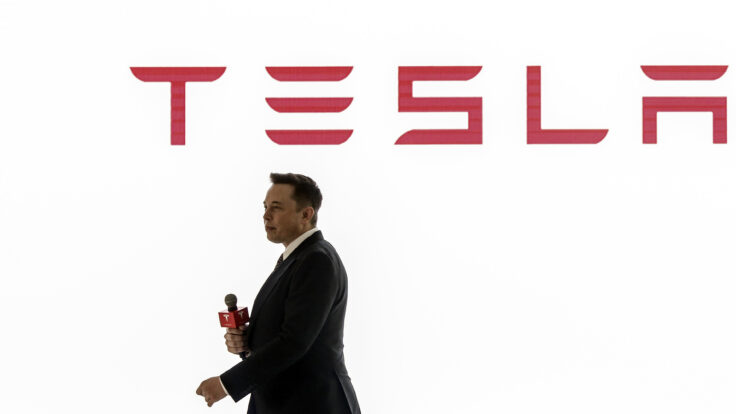|
Welcome back to Dry Powder...
...And thanks for your interest in Puck, our new media company covering the intersection of Wall Street, Washington, Silicon Valley, and Hollywood.
If you're enjoying this private email, consider subscribing or sharing the subscription link with a friend. As always, if you'd like to get in touch, you can reply directly to this note—or email fritz@puck.news to inquire about a package deal for the holidays.
SPONSORED BY
As Mike Milken once said, “When the ducks are quacking, you have to feed them.” The ducks are doing some serious quacking these days. Each week, I receive feedback from readers and sources about Wall Street’s biggest characters and concerns. I’ll be engaging with some of those questions here—in addition to a few observations of my own.
Buzzfeed is down 40 percent from its I.P.O. price on Monday. Is this a sign of the decline of the SPAC market or systemic troubles in the company?
I think it’s a sign of both trouble in the SPAC market and a withering of confidence in whatever BuzzFeed is these days. On the one hand, the Securities and Exchange Commission is stepping up its scrutiny of, and investigation into, a variety of SPACs, including whether or not Donald Trump’s Trump Media and Technology Group jumped the gun in its merger discussions with Digital World Acquisition Corp., as well as the financial projections that Lucid Motors used in its merger with Churchill Capital Corp IV, a SPAC sponsored by former Citigroup investment banker Michael Klein. Gary Gensler, the former Goldman partner who is now chairman of the S.E.C. is on the case. “I believe the investing public may not be getting like protections between traditional I.P.O.s and SPACs,” he said in a speech this week. He also criticized sponsors for taking as much as 20 percent of the SPAC economics, for very little money, at the expense of the SPAC I.P.O. investors.
Although the bloom is off the SPAC rose, 2021 has been a barnburner: There have been 590 SPACs born this year, raising $158 billion. But, according to SPAC Insider, some 485 SPACs are still looking to do a deal and there is a two-year clock ticking away.
As for BuzzFeed, the vultures started circling early with the news that 94 percent of the initial investors in the SPAC that merged with BuzzFeed voted to get their money back, plus interest, rather than put their money toward the BuzzFeed deal. That’s not surprising, given that the SPAC was trading below its $10 redemption price in the weeks before the BuzzFeed listing. Indeed, BuzzFeed planned for just this scenario, which is why the company separately raised another $150 million in convertible debt. The bigger problem for Jonah Perretti, BuzzFeed’s precocious C.E.O., is that a stock down 40 percent in a week is not much use as a currency to effect the digital media roll-up that he had envisioned. On the other hand, it’s still early days for BuzzFeed as a public company, and it could rebound. But this was not a good week for the BuzzFeed crowd.
ADVERTISEMENT
GM, which has a market capitalization that’s 1/10th of Tesla, just pledged a $3bn investment toward an electric car plant in Detroit. How come America’s most revered car maker can’t get a boost in the markets?
It’s a good question. But it’s the wrong one. The better question is why Tesla is worth more than every other car company on earth combined. (Actually, that’s no longer true, if it ever was; Tesla is worth more than its next nine largest competitors combined and there are some 50 car manufacturers globally.) That’s the breakdown in thinking, not that GM should be worth more than it is. Given that GM went through a bankruptcy and is still trying to right its proverbial ship, a market value of around $90 billion doesn’t feel crazy to me. It only feels crazy compared to Tesla, especially since Tesla—as we have discussed many times now—makes most of its money from selling carbon credits, not cars...
FOUR STORIES WE'RE TALKING ABOUT Diminishing returns seem inescapable, especially if lower box office results in fewer megahits. Has Marvel passed its peak? MATT BELLONI Putin has imposed himself on the news cycle—and the White House—with plenty of tricks up his sleeve. JULIA IOFFE The existential crisis of cable news extends beyond the firing of Chris Cuomo and the exit of Rachel Maddow. DYLAN BYERS “The Ax” was once an influential figure on Wall Street, before Eliot Spitzer put the kibosh on the research industrial complex... WILLIAM D. COHAN
|
-
Join Puck
Directly Supporting Authors
A new economic model in which writers are also partners in the business.
Personalized Subscriptions
Customize your settings to receive the newsletters you want from the authors you follow.
Stay in the Know
Connect directly with Puck talent through email and exclusive events.













